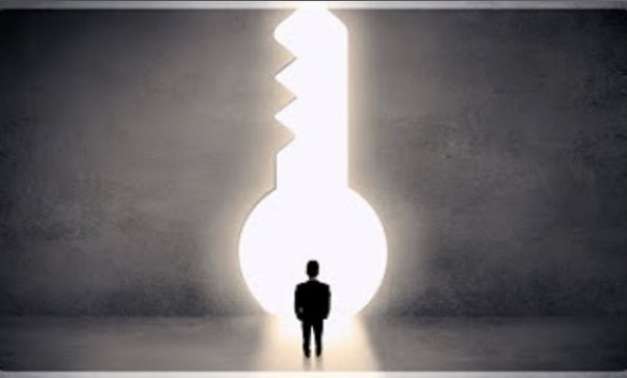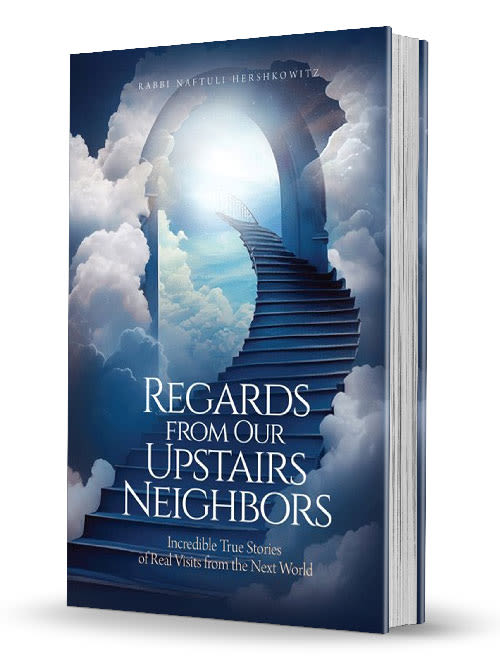
Behind the Curtain
Trusting Hashem is easy when our lives are ticking along nicely, when everyone is healthy and the kids are doing fine. When money isn't a problem and our marriages feels good…It's a different story when taking care of ill, elderly parents.

One of the best jobs I ever had was working for seven years at a day care center for people with Alzheimer’s. Being with the clients was usually quite pleasant despite their confusion, and often very interesting and poignant. Naturally there was a sad aspect as well; it isn’t easy to witness someone’s mental deterioration. But what was really difficult was watching the adult children struggle with the effects of the disease; the mental and emotional disappearance of the parents they knew so well.
I remember one daughter talking to me about her mother, “It looks like Mom,” she said. “It sounds and smells and feels like my mother, but it isn’t. If I’m lucky, I can catch a glimpse of the woman she used to be. You and I are seeing the same person but I know who my mother really is deep inside. This is not the real her. It’s just a mirage. My real mom is somewhere behind the curtain…”
I think about those words from time to time, especially when I remember my own mother who became such a mystery to me as her dementia deepened and she lost herself.
But I also think about those words when I pray, when I affirm God’s kindness and mercy, adjectives that are used again and again to describe our Creator.
Both in my personal life and in my work, I hear and see a lot of things that to my limited mind seem anything but kind and merciful and I think, well, this doesn’t look like mercy or feel like kindness but if it’s from God (and everything is) than that’s what it must be. Devastating circumstances may seem like random suffering that is heartless and unfair, but that’s only a mirage. God treats us lovingly and with  limitless compassion, always. “Hashem is good to all, His mercies are on all His works… the Compassionate one; the King who loves righteousness and judgment.”
limitless compassion, always. “Hashem is good to all, His mercies are on all His works… the Compassionate one; the King who loves righteousness and judgment.”
So what do we do when it seems like we are being slammed with hard times, tough tests and shattered dreams? When it seems like what’s happening to us or to those we love, is anything but just, kind or merciful? When we think to ourselves “This may be love but not as I know it.”
Finding something/anything good in the midst of a tough situation can jump-start the awareness of God’s love that is present even within a wrenching state of affairs. Tiny glimmers of evidence abound but we have to want to find them. You have to be willing to see Hashem’s mercy hidden in the fog of your misfortune. Often our willingness is blocked by overwhelming pain and that’s normal. It takes time to recover from an earthquake and Hashem knows this. He made us capable of ambivalence and conflicting emotions. Feeling betrayed, angry or abandoned is human.
We are God’s children and small children cannot understand the ways of their father. He is miles away in cognitive development, maturity and experience. Parents live in another dimension from their kids; there is no way a mother could possibly communicate to her toddler her vision for his future, or her immense devotion to his success and well-being.
Sometimes, despite experiencing intense sorrow, you might be able to discern elements of kindness and mercy right away. There are things to be grateful for in any test.
In the Shemonah Esrei prayer we acknowledge that Hashem has blessed us with wisdom, insight and discernment. These are the tools we need to use when fighting our way through an ambush of fear and heartache. Most of all, we need faith.
It helps to repeat over and over that Hashem loves us and feels our pain and that He is with us in our time of distress. And that eventually He will change our lamentation into dancing. These are heavenly promises made by the One who is also described as our Rock and our Redeemer.
Trusting Hashem is easy when our lives are ticking along nicely, when everyone is healthy and the kids are doing fine. When money isn’t a problem and our marriages feels good.
Trusting Hashem is a challenge when we are sick and worried, when there has been a tragedy, an untimely death or a tremendous disappointment.
But although it may not look like mercy, feel like kindness or seem like love, we believe that tests are all those things. Jews are called “believers, children of believers.”
It’s not denial of pain, it’s not minimizing loss, it’s not a refusal to face reality. It’s emuna that even if it hurts like hell, heaven exists for those who believe. True emuna can bring anyone, in any situation, into a state of grace.
And sometimes we just need to hang on and give God the benefit of the doubt.











5/06/2018
Thank you
Thank you for this gentle and timely reminder. I think I might be rereading this more than once.
5/06/2018
Thank you for this gentle and timely reminder. I think I might be rereading this more than once.
4/29/2018
Thx
Thx Rebbetzin!! I totally hear Ure wisdom and agree. I’ve been through a major Nisayon over the last number of years. The only safe place, warmth and sanity was my relationship with Hashem. It’s been tough as hell. The absolute only way I’ve survived and thrived has been as a result of my Emunah development. I’ve grown closer to Hashem in the last few short years than in the previous 30 years. And I thank Hashem for the Nisayon he sent me.